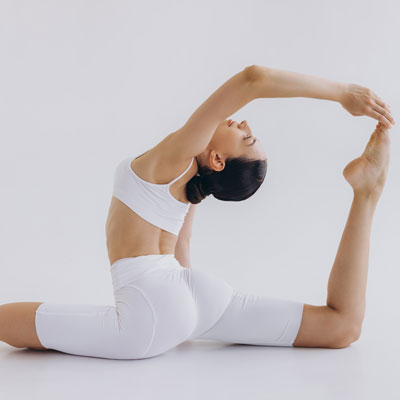Blogs
The Connection Between Posture and Mental Health

The connection between posture and mental health is more substantial than you might think. Poor posture, such as slouching or hunching, can contribute to stress, fatigue, and low self-esteem. On the other hand, maintaining an upright posture promotes better breathing, increases energy, and can improve your mood and confidence. I’ve experienced firsthand how sitting or standing tall can create a positive shift in mindset. By practicing good posture daily, you’re not just supporting your physical health but fostering mental well-being. Let’s explore how simple posture changes can enhance both your mind and body.
Understanding Good vs. Poor Posture
As a spine specialist, I often tell my patients that posture is like a window to their mental state – and vice versa! When discussing good posture, we’re not just being picky about your appearance. Think of your spine as a mighty tower that supports your body and your mood and energy levels.
Good posture means:
- Head balanced over shoulders (not playing turtle!)
- Shoulders relaxed (not wearing them as earrings)
- Chest open (let those lungs breathe!)
- Natural spinal curves (yes, some curves are good!)
Poor posture often shows up as:
- Forward head posture (aka “text neck“)
- Rounded shoulders (the classic “computer hunch”)
- Swayback (not the dance move)
The Science Behind Your Slouch
Ever wonder why you feel more confident when you stand tall? Let’s momentarily geek out about the science (don’t worry, I’ll keep it fun!).
Your Body’s Chemical Cocktail
When you maintain an upright posture, your body becomes a master bartender, mixing up the perfect blend of feel-good chemicals:
- Cortisol (stress hormone): decreases
- Testosterone: increases (hello, confidence!)
- Serotonin: rises (your happiness buddy)
- Dopamine: gets a boost (motivation station)
The Breath Connection
Think of your lungs as balloons. When you slouch, it’s like trying to inflate a balloon while sitting on it – not very practical! Upright posture gives your lungs room to expand, leading to:
- Better oxygen flow
- Increased energy levels
- Improved mental clarity
Posture and Mental Health Conditions
The Anxiety Loop
Picture this: You’re feeling anxious, so you hunch over (making yourself smaller), which restricts your breathing, which makes you more anxious… See the pattern? Breaking this cycle can start with simply sitting up straight!
Depression and the Power of Posture
Research shows fascinating links between posture and mood. In one study, participants who maintained an upright posture reported higher self-esteem and better mood than those who slouched. Think of good posture as a natural mood booster – no prescription needed!
Stress and Your Spine
When stress hits, our bodies often respond by tensing up. This creates a domino effect:
- Muscles tighten
- Posture suffers
- Breathing becomes shallow
- Stress increases
- Repeat
Practical Tips for Better Posture and Mental Health
The Power Pose Challenge
Try this: Stand like a superhero for just two minutes (yes, really!). Research suggests this simple pose can:
- Boost confidence
- Reduce stress hormones
- Improve mood
Mindful Posture Checks
Set reminders throughout your day to check your posture. I tell my patients to imagine a string pulling them up from the crown of their head – like a puppet, but in a good way!
Movement Medicine
Your body wasn’t designed to be a statue! Try these mood-boosting moves:
- Shoulder rolls: Roll those tension boulders away
- Cat-cow stretches: Your spine’s favorite yoga moves
- Standing backbends: Gentle backward bends can counteract hours of forward hunching
Professional Support and Resources
When to Seek Help
Consider professional support if you experience:
- Persistent poor posture despite efforts to improve
- Chronic pain or discomfort
- Ongoing mental health challenges
The Power of Integrated Care
At the Scoliosis Center of Utah, we understand that optimal health requires attention to both physical and mental well-being. Our approach combines:
- Postural assessment and correction
- Mental health considerations
- Customized treatment plans
- Regular progress monitoring
The Mind-Body Connection: A Two-Way Street
Remember, your mind and body are constant conversation partners. When one improves, the other often follows suit. Good posture can:
- Enhance confidence
- Boost energy levels
- Improve mood
- Reduce stress
- Support overall mental health
Expert Tips from the Clinic
From years of treating patients with both postural and mental health concerns, here are my top recommendations:
- Start Small: Rome wasn’t built in a day, and perfect posture won’t be either
- Stay Consistent: Make posture checks part of your daily routine
- Be Patient: Your body and mind need time to adapt to new patterns
- Listen to Your Body: If something hurts, adjust or seek help
Your Posture Toolkit

At the Scoliosis Center of Utah, we’re here to support both your physical and mental well-being. Whether you’re struggling with posture, experiencing mental health challenges, or both, our team is ready to help you achieve optimal health through our integrated approach to care.

Dr. Katalina Dean
Dr. Katalina Dean is the founder and clinical director of Scoliosis Center of Utah, in Midvale, UT. Her team specializes in posture correction, spinal rehabilitation, and non-invasive scoliosis care and bracing.
Call Today
Do You Qualify for Care?
Schedule an Appointment Below
